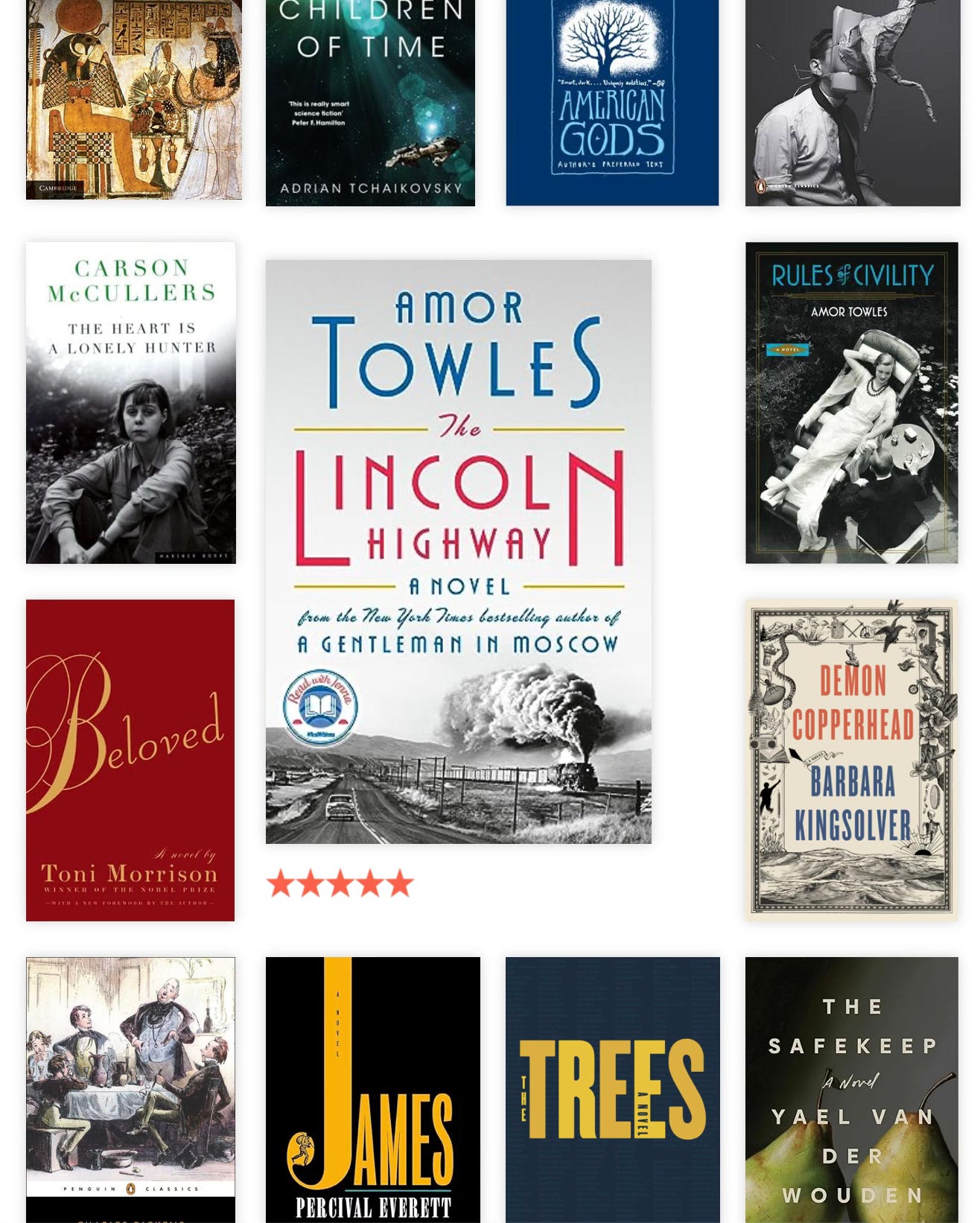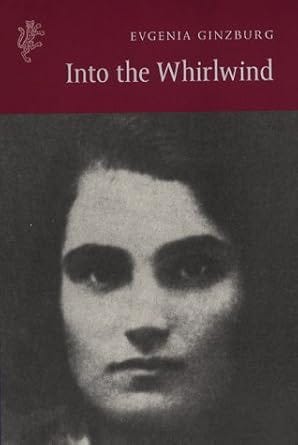Sometime after the Covid hit, and as a result of the forced confinement that most of us had to endure, I realised that my powers of concentration had dwindled over the years to a mere husk of what they were when I was younger. As an example, I remember vividly taking a German literature class in my sophomore year of university called “Kafka, Hesse, Mann,” which was, as you might guess, a survey of works by those authors. As memory serves, we had to read over the course of the semester: various short stories (Metamorphosis, In the Penal Colony) by Kafka, as well as The Trial; The Glass Bead Game and something else I can’t recall by Hesse; and Doctor Faustus and The Magic Mountain by Thomas Mann. At the time, that reading list didn’t strike me as ridiculous, even though, in retrospect, it required a fuckton of reading. Hesse’s Glass Bead Game and Mann’s Faustus are each well over 500 pages. And the Magic Mountain? Closer to a thousand. Being a typical university student in at least one respect, I was no stranger to procrastination, which led me to the unenviable prospect of having to read all of the Magic Mountain over a single weekend ahead of an exam the following Monday. My late-adolescent brain figured I could just read 400 pages a day and all would be fine. I had the whole weekend, after all! The amazing thing is: I did do that! I recall picking up the Magic Mountain on Saturday morning and reading essentially non-stop (save for sleep) through the following Sunday evening. This marathon session intensified the whole experience, and I can to this day still remember large passages from the text (e.g. the Walpurgisnacht climax or the feud between Settembrini and Naphta leading to their famous duel) in ways that, had I more been a more responsible student and spaced out my reading over many days, would likely be less vivid. My point is not to flex my college reading prowess, which, as I say, did not seem especially unusual, but rather to observe that this incident of procrastination-fuelled binge reading serves as a clear marker of an ability to concentrate that, decades later, had clearly diminished.
So I resolved to start reading fiction again, which I had largely given up sometime back in early 2000s. This resolution has happily coincided with my return to undergraduate teaching, for which I must commute (by train) frequently from my home in Madrid to my classroom in Segovia – and thus affords me time to read. Can I also say that I read almost exclusively in digital format, which has helped assuage any feelings of regret I used to have in seeing my weekly screen time reports, since now instead of being a cold reminder of hours lost to pointless doom scrolling on Twitter (which I have completely abjured since the US election debacle) it instead captures the hours I have spent on Kindle or iOS Books (I use both, although I prefer Kindle).
So permit me to add to a long tradition that spans from Art Garfunkel to Barack Obama to Bill Gates. (I am pretty sure that Garfunkel and Obama have indeed read all the books they list, but I wouldn't be surprised if Bill Gates has a little Blinkism going on.) Anyway, I am not going to go through my entire list, of course, but here are some highlights. If you want to see my list, I started using Goodreads a few years ago (and if you do too, please feel free to connect with me as I would profit from the suggestions), so you can see the full thing there.
I started out the year reading around the JFK assassination, mostly because last year there was a lot of buzz due to the 60th anniversary. This included a podcast by no less than Rob Reiner, which I listened to and led me close to, but not actually down, the rabbit hole of JFK conspiracy theorising. To wit: I didn’t indulge in any of the thousands of books produced by the JFK-conspiracy complex, but I did read Don DeLillo’s Libra, his fictionalized account of the life of Lee Harvey Oswald. And I can now say that there is a Don Delillo book I genuinely enjoyed. That then led to me James Ellroy’s Underworld USA Trilogy, the first book of which, American Tabloid, I realised about a third of the way through, I had actually already read (on a suggestion by my good friend Michael A. some years back) – AND completely forgotten. This itself was another sign of the Twitterisation of my mind, since retention is a marker of concentration. Reading it anew, I found it much more interesting and memorable. But by the time I had finished up the third volume of the trilogy, my whole interest in that period had been, shall we say, sated, and my tolerance for in-the-name-of-narrative-verisimilitude violence, sexism and bigotry exhausted, so I moved on to more pleasant ground.
Namely, the Soviet Gulag system. Yay! First I went through volume one of Solzhenitsyn’s Gulag Archipelago, and was then propelled to read (because Solzhenitsyn cites it a lot) Evgenia Ginzburg’s memoir, Into the Whirlwind & Within the Whirlwind. This was genuinely one of the most memorable books I consumed last year.
Ginzburg was an enthusiastic young communist who was caught up in the Stalinst purges of the late 1930s and then disappeared into the camp system of Siberia for over a decade, ending up in the frigid Kolyma region of far Eastern Russia. When she finally reemerged in the 1950s, having lost most of her family, friends, position, and possessions, she started to write about her experiences, which were eventually published in the late 1960s. I won’t bother going into the details – just read it! – but this is the perfect book for putting whatever travails you might be facing into some perspective, because if you think you have it bad, buddy, you don’t know the meaning of bad.
Another memorable foray in my year of reading was Liu Cixin’s Remembrance of Earth's Past trilogy because, yes, I watched the “Three Body Problem” on Netflix – no judging! – and, being impatient, decided to just read the series to find out what the hell was going on. (That also happened to me with the series Silo on Apple TV, leading to about twenty hours of my life that I am never getting back.) Cixin is hardly a master stylist of prosody, but the books were certainly interesting, and by the time I was deep in volume 3, there was some genuinely mind-bending stuff in there. I frankly appreciated Cixin’s “git-her-done” approach to narration - no time for character development or description – got story to tell!
This appreciation was particularly the case because I turned to the trilogy immediately after having slogged my way through Swann’s Way, the first volume of Proust’s epic In Search of Lost Time, where there is no story, and it takes about three pages to describe water lilies floating in a stream or Swann’s reactions to seeing his beloved Odette wearing pink. I had actually read this book back in college (again another class overstuffed with reading, this time in French lit) and found it, how shall I say, very boring. I enjoyed it this time around, mostly because, now that I am much older, I can appreciate the experience of memory and remembering more than I did when I was 20. That said, if you are under 50, do not bother with Proust is my advice.
I also read Amor Towles A Gentleman in Moscow, which reminded me a little of a popular soufflé-of-a-book back in the 90s called Captain Corelli’s Mandolin. If you can get past its candy-store-façade caprice, it is a good read, or at least I enjoyed it, enough to then plough through his other books (The Rules of Civility, The Lincoln Highway), which I found less memorable and my Amor Towles phase came to a quiet conclusion.
I also spent the year reading some books I feel I should have read already: Carson McCullers’ 1940 novel The Heart Is a Lonely Hunter, for example. Has anyone read this book? It’s strange, and I am not sure of the point of it. Also: Toni Morrison’s Beloved, which I liked very much, but also which confused me so much I made my wife read it so she could explain parts of it to me (which she did, çok teşekkürler sevgilim). And finally, Charles Dickens’ David Copperfield, which I read after I had finished Barbara Kingsolver’s updating of the classic tale in her novel Demon Copperhead. Reading them in tandem, and in reverse order, was both helpful and enlightening and enhanced my appreciation of both.
Another recommendation: James by Percival Everett (whose novel Erasure was the basis for the film American Fiction, which I liked a great deal). James is a clever spin on Mark Twain’s classic Huckleberry Finn, told from the point of view of the slave Jim. If you can buy into its central conceit (of enslaved people as hyper-literate, dealing with their plight with wry irony and stoicism), you will enjoy it. It’s a fast-paced romp that packs a lot of reflection in its slight picaresque form.
As I write, I am enjoying a white Christmas at my cabin in the woods in Canada (see picture), recovering from dental surgery, and finishing up the year with Aysegül Savas’ acclaimed little novel The Anthropologists about a young expat couple apartment shopping in, is it Paris? (I note that this title is also on Obama’s list, so I am in good company.) As an expat who has been apartment hunting in a foreign city, I can partially relate (this is also uncomfortably true of another short novel I read this year, Ben Lerner’s tedious and self-absorbed Leaving the Atocha Station), although Savas’ book makes me, shall I say, conscious of my middle age. Oh, to be poor and young again. No wait. That’s not true at all. Instead, it makes me grateful for homeownership. There’s some anthropology for you.
Dear readers, I wish you a marvellous holiday season and the happiest of Happy New Years. Thank you for subscribing to the ‘Stack and, having made it this far, you might as well throw me a like! If you have any suggestions for good books to read in 2025, please do let me know in the comments.





Halfway through reading this post I was going to throw out: "The Gulag Archipelago" and then I saw it was already on your radar. Admittedly, I only read the abridged version (more than enough for it to hit home). I'll check out: "Into the Whirlwind & Within the Whirlwind" thanks for these posts! Hopefully some of these are either new to you or on your "to read" list:
- Man's Search for Meaning (Frankl)
- A People's History of the United States (Zinn)
- Border Wars (Dodds)
- Maus (Spiegelman)
- Persepolis (Satrapi)
Always a pleasure reading your posts Rolf , wishing you a great holiday. P.S: cabin is stunning